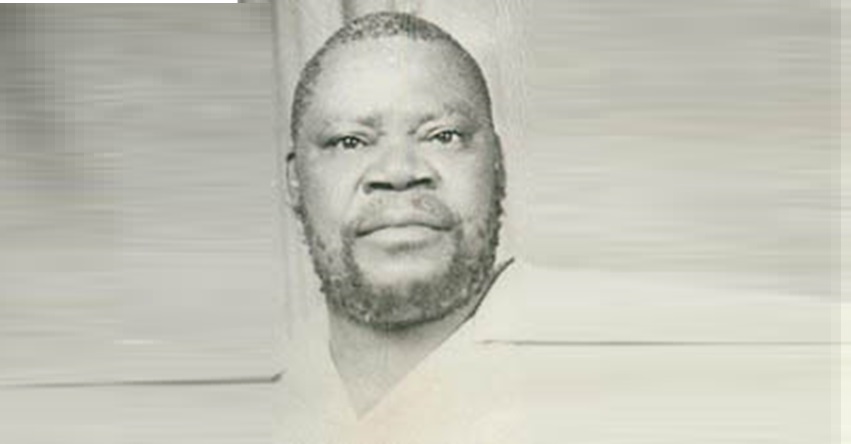In a historic ruling, the High Court has issued a declaratory order affirming the rights of Peter Jack Masedza’s children to exhume and rebury their father’s remains, five decades after his passing.
Masedza, widely recognized within apostolic sect circles as Johane Masowe, is a revered figure among his followers.
This ruling marks a significant legal and spiritual victory for Magaga and Reuben Masedza, granting them the right—within legal parameters—to honor their father’s memory in accordance with cultural and familial traditions.
The case arose from a prolonged dispute with a faction of the Gospel of God Church, which had consistently prevented the Masedza brothers from accessing their father’s burial site at Gandanzara Shrine in Makoni, a location considered sacred near Rusape.
Johane Masowe, a spiritual leader venerated by many, passed away in Zambia on September 14, 1973, at the age of 59. His remains were later returned to what was then Rhodesia (now Zimbabwe) and buried at the shrine.
Despite a previous High Court ruling in 2017 that granted both parties equal access to the grave, tensions persisted. As a result, the Masedza brothers sought legal clarification on two key points: whether they had the legal authority to exhume their father’s remains and whether the court could mandate the exhumation.
In his judgment, Justice Tawanda Chitapi upheld the brothers’ right to exhume their father’s remains, provided they adhered to all legal procedures. However, he declined to issue a direct order for exhumation.
“The applicants have the right to exhume the remains of the late Johane Masowe Shoniwa Masedza, currently interred at Gandanzara Shrine, Rusape, provided they follow the necessary legal steps,” Justice Chitapi ruled.
He clarified that while the ruling granted declaratory relief, it did not automatically permit exhumation without compliance with the Cemeteries Act.
Justice Chitapi acknowledged the cultural and familial significance of the case, noting the brothers’ argument that children have a moral and traditional obligation to bury their parents, maintain access to their graves, and preserve them as part of their heritage.
Advocate Lewis Uriri, representing the Masedza brothers and instructed by Mr. Nickiel Mushangwe, argued that the denial of access to their father’s burial site had caused significant distress and severed their connection to their father’s remains.
He further contended that Johane Masowe, a devout believer, would not have wanted his grave to become an object of worship or a source of benefit for the Gospel of God Church’s leadership.
On the opposing side, the Church’s Deputy President, Erica Office, represented by Advocate Silvester Hashiti, contended that the deceased had wished to be buried at Gandanzara Shrine. He dismissed the application as baseless, citing the considerable time—over 20 years—that had elapsed since Masedza’s burial.
Justice Chitapi acknowledged that the ongoing legal battles between the parties contributed to the delay in filing the current application.
Mr. Mushangwe hailed the ruling as a landmark decision with profound implications, both legally and spiritually.
“This judgment offers relief and a clear path forward, addressing the longstanding struggle of children seeking to honor their parents after death. It is particularly significant given the religious stature of Johane Masowe,” he stated.
While the ruling does not directly order exhumation, it provides the legal foundation for the brothers to proceed within statutory guidelines.
Justice Chitapi’s decision highlights the importance of balancing cultural values, legal procedures, and the sanctity of burial sites while reinforcing the judiciary’s role in ensuring justice.
Beyond resolving a long-standing conflict, this ruling restores dignity to the Masedza family and underscores the enduring connection between tradition, family, and the law.
The decision allows Johane Masowe’s children to finally honor their father’s legacy in peace.
Since 1932, when Shonhiwa Masedza—later known as Johane Masowe—began his prophetic ministry, the Gospel of God Church has been synonymous with outdoor worship, a defining characteristic of its practice.
For 77-year-old Magaga Masedza, the ruling represents the culmination of a grueling 52-year battle.
Reflecting on the ordeal, he spoke with a mixture of exhaustion and relief: “This journey has been incredibly difficult, but we are grateful that justice has finally prevailed while we are still alive.”
For Magaga and his family, this victory is not just a legal triumph but a deeply personal and spiritual reclamation of their heritage.

For comments, Feedback and Opinions do get in touch with our editor on WhatsApp: +44 7949 297606.
